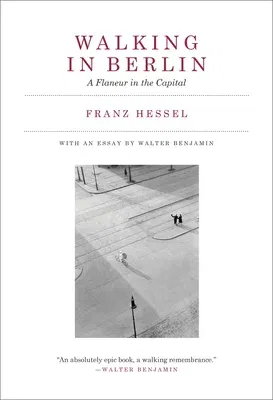The first English translation of a lost classic that reinvents the
flaneur in Berlin.
Franz Hessel (1880-1941), a German-born writer, grew up in Berlin,
studied in Munich, and then lived in Paris, where he moved in artistic
and literary circles. His relationship with the fashion journalist Helen
Grund was the inspiration for Henri-Pierre Roche's novel Jules et Jim
(made into a celebrated 1962 film by Francois Truffaut). In
collaboration with Walter Benjamin, Hessel reinvented the Parisian
figure of the flaneur. This 1929 book--here in its first English
translation--offers Hessel's version of a flaneur in Berlin.
In Walking in Berlin, Hessel captures the rhythm of Weimar-era Berlin,
recording the seismic shifts in German culture. Nearly all of the essays
take the form of a walk or outing, focusing on either a theme or part of
the city, and many end at a theater, cinema, or club. Hessel deftly
weaves the past with the present, walking through the city's history as
well as its neighborhoods. Even today, his walks in the city, from the
Alexanderplatz to Kreuzberg, can guide would-be flaneurs.
Walking in Berlin is a lost classic, known mainly because of Hessel's
connection to Benjamin but now introduced to readers of English. Walking
in Berlin was a central model for Benjamin's Arcades Project and remains
a classic of "walking literature" that ranges from Surrealist
perambulation to Situationist "psychogeography." This MIT Press edition
includes the complete text in translation as well as Benjamin's essay on
Walking in Berlin, originally written as a review of the book's
original edition.
"An absolutely epic book, a walking remembrance."
--Walter Benjamin

